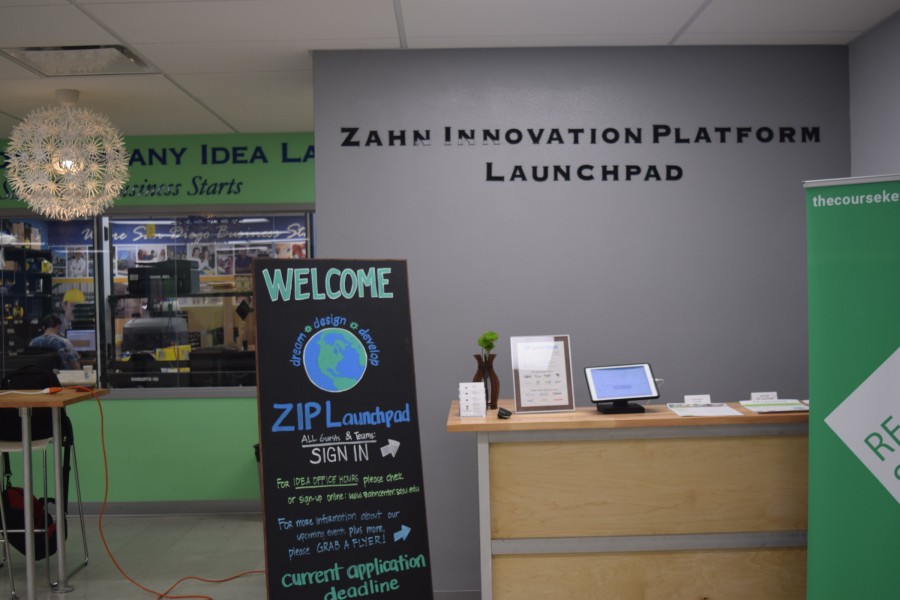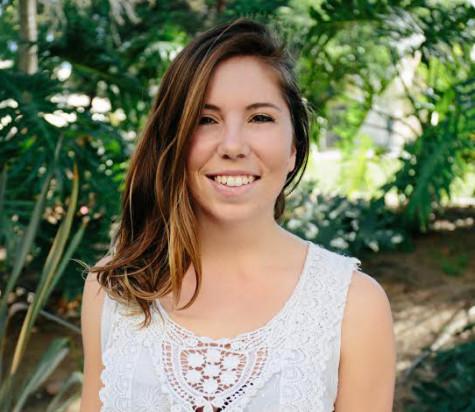The Zahn Innovation Center, an on-campus incubator for aspiring entrepreneurs, was renamed this semester as the Zahn Innovation Platform (ZIP) Launchpad. The renaming was made possible through a $5.1 million donation from the Moxie Foundation and support from Peter and Irwin Zahn.
In order to further the development, collaboration and innovation of San Diego State entrepreneurs, the ZIP Launchpad has created three new initiatives: the Zahn Chair of Creativity and Innovation position, the Zahn Professorship of Creativity and Innovation, and the Irwin Zahn Spirit of Innovation Prize.
The Irwin Zahn Spirit of Innovation Prize will be granted to one SDSU graduate each year. The award will cover a student’s entire debt amount and will allow a student to continue on his or her entrepreneurial ventures debt-free.
A new addition to the launchpad this semester is lab manager Kyle Kitzmiller, who brings some fresh ideas to the table.
“We are pushing to really expand the technical presence of the ZIP Launchpad on campus,” Kitzmiller said. “What that means is reaching out to engineering and science colleges and trying to recruit as many science and technology people as possible.”
Kitzmiller said the push to recruit science and engineering students into the ZIP Launchpad will ideally benefit students from any academic background with technologically based ideas.
This semester, Kitzmiller will also be spearheading a 3D printing workshop. Students who complete this orientation, which will be offered in February, March and April, will be allowed to use the 3D printer for free courtesy of the ZIP Launchpad.
Students and community members will have a central entrepreneurial hub.
The Engineering Interdisciplinary Sciences Complex, set to be completed in 2018, will house the ZIP Launchpad, the Lavin Entrepreneurship Center offices, the ZIP Lab and the HG Fenton Company Idea Lab. In the meantime, students can still access and use the ZIP resources in the current location on the fourth floor of the Education and Business Administration building.
Teams that are admitted into the ZIP Launchpad have access to mentors, a coworking space and the HG Fenton Idea Lab, which offers the ZIP Launchpad teams pro bono prototyping and interaction with student engineers.
Each semester, about 200 to 300 members of the SDSU community apply to the ZIP Launchpad. There are two admission cycles, during the fall and spring semesters. This semester, the ZIP Launchpad has admitted 15 teams. Accepted teams are given the resources to have their ideas transform into a viable business plans that are ready to be launched into the market.
Executive Director Cathy Pucher said one of the most inspirational teams out of the ZIP Launchpad has been CourseKey, which has moved onto a new incubator, EvoNexus.
Pucher said CourseKey has been one of the most successful teams that has launched from the center with a successful Kickstarter.
She said to date the center has raised $1.2 million from angel investors that have invested in two ZIP Launchpad teams.
“We definitely want to help students launch,” Pucher said. “Not everyone launches their business for a variety of different reasons, but what we really count on everyone having is a great experience that they can take wherever they go. We are looking to find a way to measure that experience in order to improve their time at the center.”











